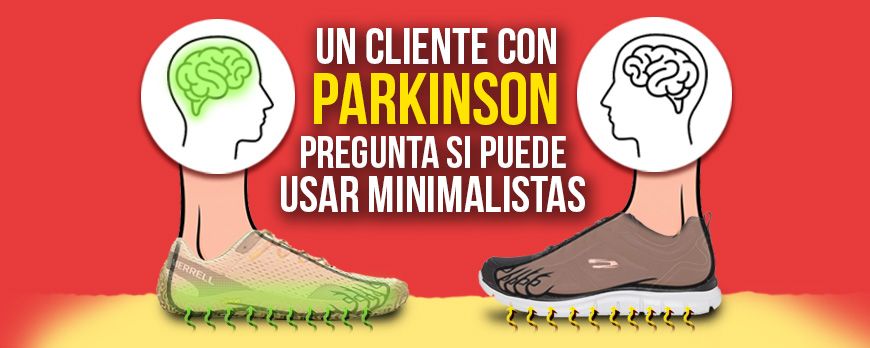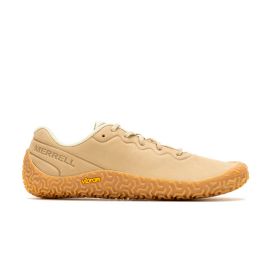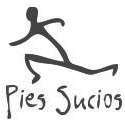No products
Prices are Management included

A customer with Parkinson's asks if he can wear barefoot shoes
The phone rings. The voice is crackly.
He introduces himself, his name is Pedro and he has Parkinson's disease.
He asks if minimalist shoes can work for him.
So far so normal, this is a very typical question.
It is commonplace in our day-to-day lives.
What is less so is saying that you have Parkinson's and asking about barefoot footwear.
Let's see.
I'm going to explain why you and Peter can benefit from walking barefoot or in barefoot shoes.
The answer I gave him was more succinct, but it went like this:
The sole of your foot is one of the parts of your body with the most nerve endings, and therefore very sensitive.
Not for bad, but for good.
This sensitivity is used, literally, to know where you are stepping.
The ground produces tactile stimuli and your body reacts to them instinctively.
For example: if you step on a pebble barefoot you instinctively change the pressure on your foot to minimise the damage -if you step on it with your forefoot you shift the pressure to your heel and if you step on it with your heel you shift it forward.
Like a ship sailing the seas.
All this in milliseconds and without thinking. It's an example of how your reflexes work.
The sole of your foot is also able to perfectly 'feel' the hardness of the ground and the force of your footfall.
From this makes you adjust the stiffness of your leg muscles to achieve the perfect combination of cushioning and shock absorption. To achieve the perfect combination of cushioning and stability depending on the terrain you the terrain you're walking on, the speed you're going, and so on.
Your legs become the perfect shock absorber: intelligent and adaptable, all in one adaptive, all this in an unconscious process, without thinking.
These paragraphs are taken from the Guide to Learning to Run that I co-wrote in 2011.
Look at the number of things your feet do.
And in all of them it needs the connection to your brain, which is fundamental to your motor and sensory function.
Any disruption of these interactions can affect your gait, your balance and your balance and coordination, which occurs in diseases such as Parkinson's, neuropathies or other Parkinson's, neuropathies or other diseases that affect the nervous system.
But watch out!
Today's shoes also interfere with the connection between your brain and your feet.
As if it were a disease.
However: what do most domesticated humans do?
They encase their feet in stiff, narrow, fat-soled, high-heeled contraptions.
It's like this.
For that's why Peter called me within a week of speaking. He had been walking barefoot on a pebbly area and he had noticed how the brain-foot connection was activating.
It's not magic.
It's biology.
And what happens when your feet act?
They improve their joint mobility and flexibility.
They get stronger, counteracting muscle weakness and stiffness caused by oppressive footwear.
They help maintain brain plasticity through the constant brain stimulation that your feet provide, improving
stimulation that your feet offer you, improving your balance and coordination.
Whatathing!
So you can tell me later that your feet hurt. And what are you missing on a cerebral level?
Well, that's good.
The message is clear: Change your shoes.
They can be the ones I'm recommending today or another model.
I have a predilection for these shoes. I've been wearing them for years and I can't get enough of them.
Surely you've heard their name sometime.
They are the Merrell Vapor Glove.
- Sport version: so that the foot breathes while you walk, train or give it hard in the gym or in the calisthenics park...
- Everyday: for a unique style while going to work or having a drink with friends with the comfort of wearing slippers.
For Women in new colours here: for do sports and for everyday with the lightness of seeming that you are not wearing shoes.
Because your health starts with your feet.
Antonio Caballo
Dejar un ComentarioDejar una respuesta
Blog categories
- Running Technique
- Shoes Review
- Scientific studies
- Nike and minimalist shoes
- Morton neuroma
- Bunions
- Podiatrists' opinion on...
- Claw toes, crowded toes,...
- Flat feet
- Runner's injuries, runner's...
- Sprained feet, ankle sprains
- Footwear for wide feet or...
- Heel and back pain
- Children's feet and...
- Circulation and bone...
- Knee pain, osteoarthritis,...
- Plantar fasciitis
Últimos Comentarios
Fernando Capellán
That Vivobarefoot lawsuit… and what happened nextLorena Cortés
This is what Nike did to Nadal's footFernando Capellán
They call it ugly... but everyone will...Antonio Caballo
The finger wristband: when fashion squeezes...







































